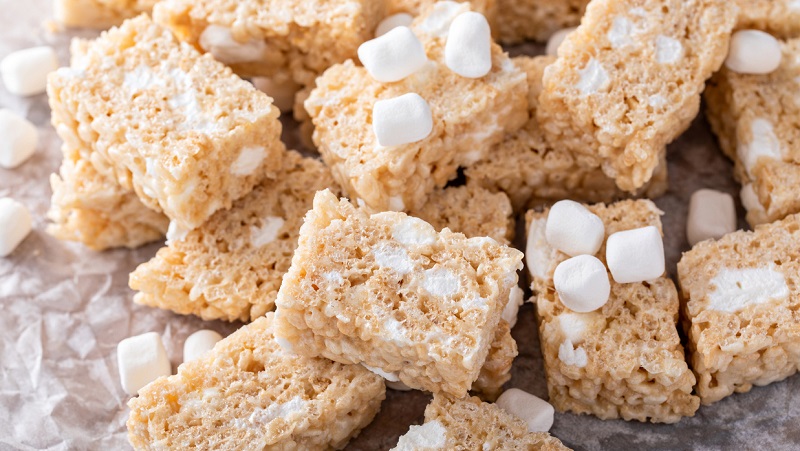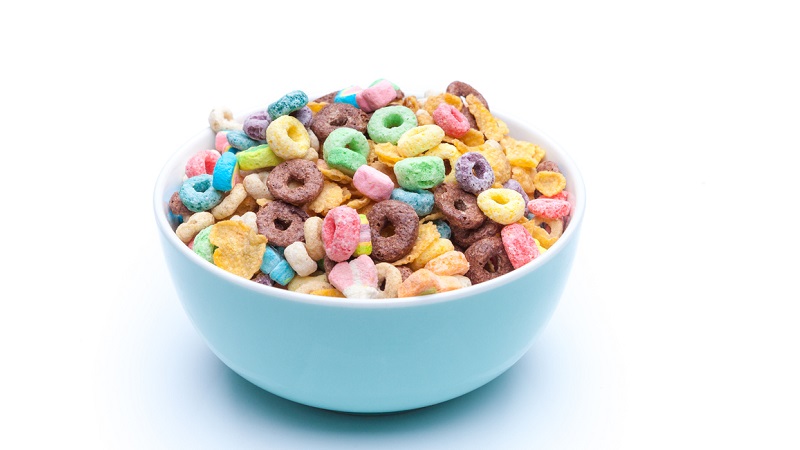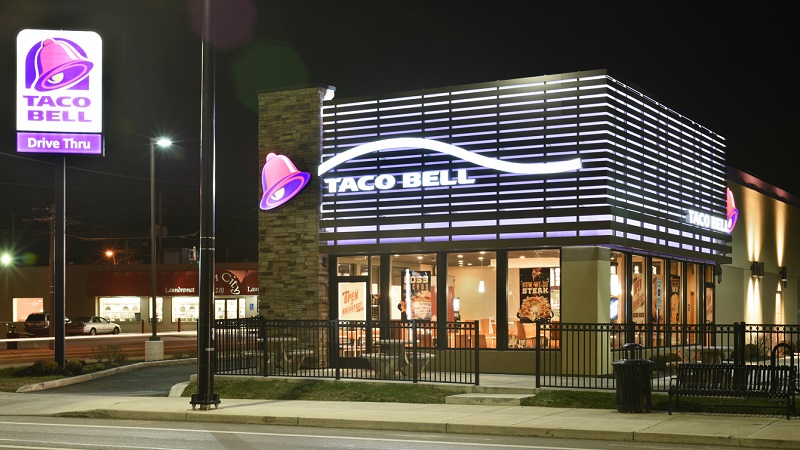Rice Krispies are incredibly popular sweets or snacks whatever you like to call them, and in some cases, they have some vitamins in their composition, like manganese – a mineral that strengthens the immune system and bones and stimulates the production of collagen.
Rice Krispies can be, to a certain extent, a somewhat nourishing snack if consumed in some proper way, not indulging in it too much, as in it, in some kind of it, there can be added an incredible amount of sugars and also in some cases sodium.
Being moderate is the key here for sure, and this is a primarily sweet snack and it is not suggested for people who want to sustain a good weight, so they should be moderate, and if they want to eat something made out of rice, they should opt for Rice cakes, that do not have as much sugar as Krispies, and are much better in the process of regulation of digestion, and are great for the leveling blood in sugar.
The recommendation is to still choose whole grain rice thanks to its nutritional worth, and many minerals and vitamins.
But there are still those who do not want to give up their favorite rice candy, snack, or sweet; and they want to enjoy their Rice Krispies, of course, it is ok to do it moderately.
And a word moderation is crucial for people of the Muslim community, who must be careful of what they are putting in their bodies, as it must be made by the Muslim laws, and also to be good for the mind and soul.
Now, it is also one of the things we want to find out – can people who belong to the Muslim faith eat them – are they halal, and safe for consumption?
Right away we must have in mind that Muslims in many parts of the world enjoy eating rice, and some dishes made out of it, which is a staple in Islamic cuisine, and here this is not an issue, but the additions that are in this Rice snack, that is the problem, not the rice itself.
Are Rice Krispies Halal or Haram In Islam?
The simple answer is that they are halal, but they must not obtain one important ingredient that is at times found in Rice Krispies – gelatinee.
Any gelatinee source must come from an animal that is killed in a Muslim way, which the Islamic faith sees as proper.
There are those Rice Krispies that come from the company Kellogg, and even if their famous snack is very popular, still it is not confirmed that their Krispies are halal and their Gelatine origins are not transparent.
So you should not buy them, from this production company, but you can find many other alternatives on the market.
The company Kellogg has stated that they are attempting to grow interested in items that have Halal certification, and they want to make more and more of them.
It is relevant for the company to have as many of these products as possible, and they want to have products that are available for Muslim people and their laws.
The Rice Krispies that are found in the USA and also in Canada, do not have halal certification and are not seen as such.
They have stated that the case is such since their Rice Krispies have gelatine inside their composition (most notably in Rice Krispies Treats, Poppers) and that the gelatinee comes from pork presumably and also from beef.
So it can be, but you cannot be certain that this is the case – but a few years later, after this, it was said that the gelatinee comes from beef, not pork, but since the product itself does not have a halal certificate then it is a matter of trust will you eat it or not.

Halal Rice Krispies Alternatives
But, as we have said there are many options for those who want to be certain in what they are eating – they want to enjoy Rice Crispies, and they do not want to eat those that have gelatinee of any kind in them, and do not want to worry, will the gelatinee that is found on the inside has come from pork or beef.
Barakat Foods is the company that makes halal rice Ckrispies, and the gelatinee that is used comes from a halal source, and it is safe for consumption.
It is even written on the box, and all people of the Muslim faith can eat it, and also in the meantime, the same company makes marshmallow kind that is also halal, and safe for consumption for people of the Islamic faith.
Also, another company that makes delicious Rice Krispies is Annie’s, and their Crispy Snack Bar is marketed as a healthfuller and more genuine rice-crispy option when it is compared to what lies in the vast market of snacks and sweets.
In their products, you can find brown rice, natural flavoring, butter, sea salt, gellan gum, regular rice, tapioca syrup, etc.
Nothing suspicious, and this is a company that makes organic and vegetarian products therefore there is nothing animal in their products, so it is presumed that they are safe for consumption by people of the Islamic faith.
Now, gelatine is the thing that makes problems, and although it is allowed to eat gelatinee that comes from beef, the one that comes from pork is problematic, and which one is used could only be determined in the laboratory.
Have in mind that these days, there is an increasingly present trend of developing new methods for the detection of pork gelatine, even when it is already incorporated into some products such as gummy candies, marshmallow products, cakes, and long similar products.
But, in any way, your task is to always look for what you are consuming, and if there are traces of gelatine then it is not allowed to be eaten.
Other parts of rice Krispies are ok and more or less safe to consume.
More about Rice Krispies
Nutritionists say that rice and especially brown rice but white kind is also ok when consumed properly, even though it has more calories rice, should be consumed.
Think of Japanese and Chinese people who eat rice regularly.
Now, we have numerous derivates made out of rice – there are cakes, mochis, Krispies, and also famous galettes.
The last ones are constructed from whole grains of rice and in them, nothing was added anything additional and that is what makes them so healthy.
With Rice Krispies, things are not as simple, as they indeed have some additional elements.
They are still, after all, sweets, or to the least sweet snacks, and in them there are many additional elements, most notably sugars, chocolates, or marshmallows.
And their health status is one thing, but their halal status is just like you have been able to see something else.
In rice, regular rice is a staple in Muslim cuisine, and there are many dishes and sweets also that are made out of rice have niacin, magnesium, zinc, and also manganese.
This last is particularly relevant as it is a mineral that supports the immune system and bones and promotes the creation of collagen.
It is also suggested that since the amounts of rice can change, you should review the nutritive values.
And the same case is with Rice Krispies, a sweet snack that is made from one healthy ingredient, but not all of them are such – as many things are added, just as sodium, or sugar, but also from some other artificial elements.
In such cases, this is a snack that does not have any minerals, a small amount of fiber, and not enough antioxidants.
So, as an alternative, it is better to eat simple whole rice galettes.

Conclusion
You can find snacks made out of white and integral rice, and depending on what you are preparing, it will depend on which one is better to have.
In the end, we can say that Rice Krispies are seen as a snack, or a sweet food that is halal, with one major distinction – they must not have any trace of gelatine, as gelatinee often comes from pork, and it is strictly forbidden in the Islamic faith.
Gelatine is a processed variant of collagen which is a protein and it is found in animals and also in humans.
It can be obtained from pigs and beef, from joint tissues, and also from the skin.
Now, as we could see – this was the major problem here when it comes to the consumption of Rice Krispies.
The fact is that some Islamic scholars believe that pork gelatine can be used in food (many do not share this), because in their opinion, during the production of gelatine, the bones of pig origin are completely transubstantiated into another matter/product.
It could be made an analogy with alcohol that is being distilled into vinegar.
Nevertheless, there is a specific difference between these two cases. In times when alcohol is being converted into vinegar, a completely new product is obtained, with new properties and characteristics.
Because the change of alcohol into vinegar is complete, when the laboratory analysis is done, it will not be possible to detect alcohol-ethanol in the vinegar.
From this point of view, all Muslim people could consume vinegar, but this is not something that could be said for the consumption of gelatine, as it cannot be unreservedly said that in the case of gelatine obtained from pig bones and skin the product dissenters after its usage in a certain product.
During the production of gelatine, it is indisputable that there will be a change in shape, but not a complete change in all properties because pork gelatine will still have elements of pork origin.
If, for example, we were to take two types of gelatine, one of which is of bovine and the other of porcine origin, and if it can be determined by laboratory analysis which is of bovine and which of porcine origin, then it cannot be claimed that there has been a complete change.
If it would not be possible to determine which gelatine is of pig origin and which of beef, then it can be claimed that a complete change has occurred.
And since this distinction, is performed, as we have said in different laboratories, who will not one of the millions of people will do, then in that case, it is the best thing that every Muslim believer could do is to stay away from foods that have gelatinee in its composition.
Always, opt for brands that have Halal certificates, and there are such companies on the market that offer, many sweets, and also Rice Krispies that are halal.
Read also: Is Mars Chocolate Halal? / Are Oreos Halal?



